High Sea Sales under GST 🌊⚓
A concept in international trade that every importer/exporter should know.
Here’s a simple guide explained slide by slide 🧵👇
A concept in international trade that every importer/exporter should know.
Here’s a simple guide explained slide by slide 🧵👇
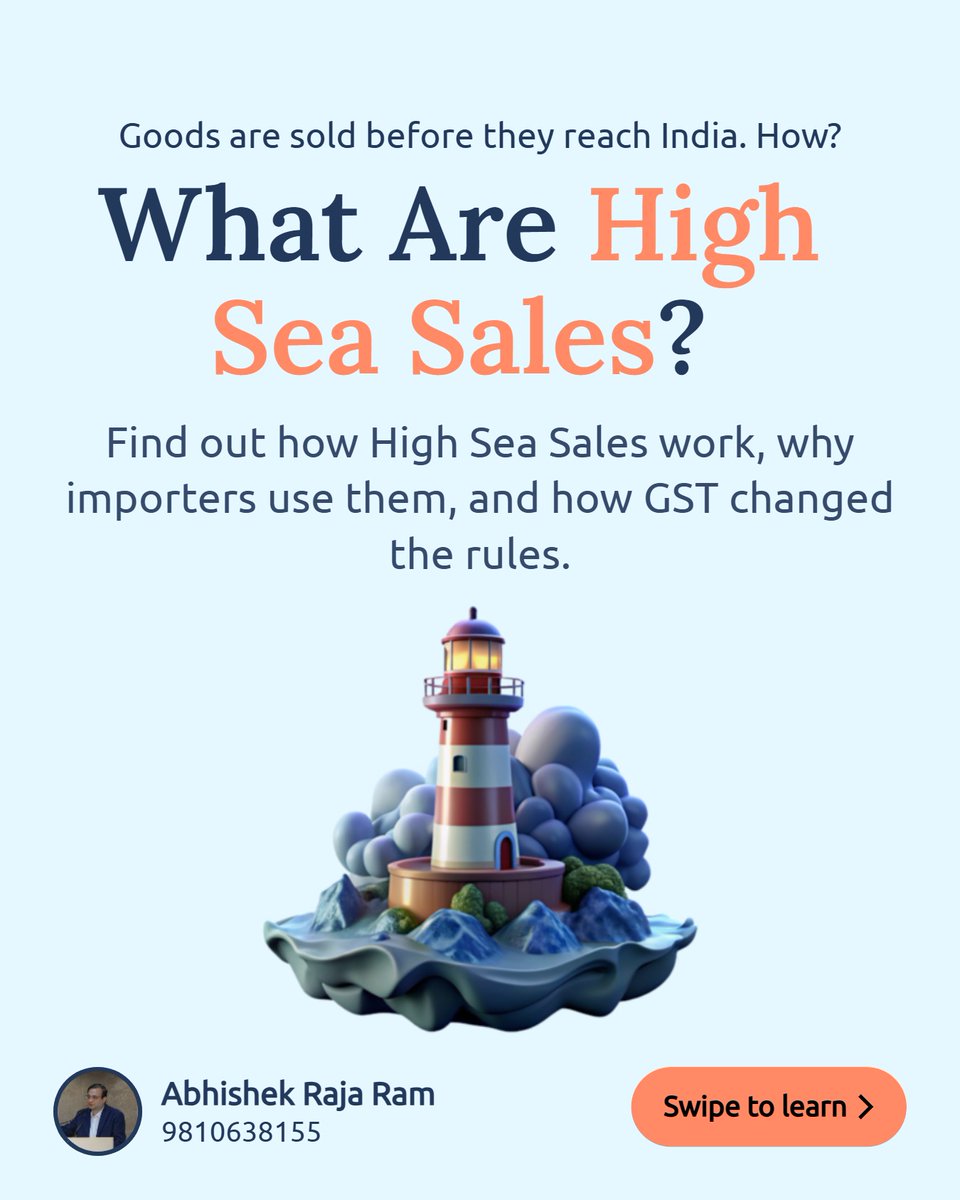
A High Sea Sale (HSS) is when goods are sold while still on the high seas, before they arrive at an Indian port and before customs clearance. 

The key feature of HSS is that ownership of goods is transferred before they cross Indian customs frontiers. 

In practice, the original importer sells goods to a new buyer by endorsing the Bill of Lading.
The new buyer then becomes the importer for customs purposes.
The new buyer then becomes the importer for customs purposes.

The final buyer, who files the Bill of Entry, is treated as the actual importer and is responsible for duties and taxes. 

High Sea Sales are recognized under Customs law and clarified under GST to avoid confusion on taxability. 

Under GST, HSS is considered outside the scope of supply.
This means the sale itself is not subject to GST.
This means the sale itself is not subject to GST.
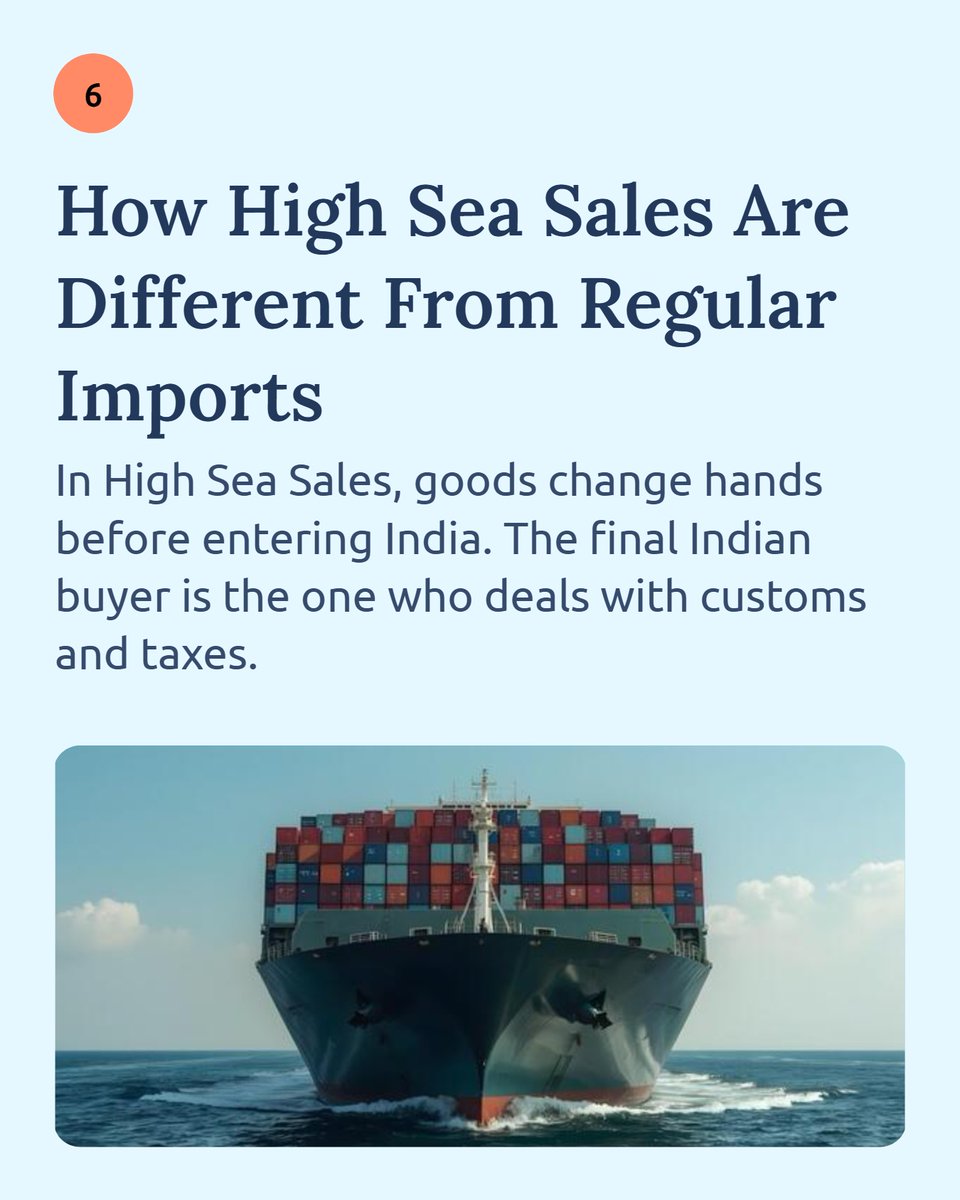
Tax is levied only when goods are finally cleared for home consumption.
That’s when Customs Duty + IGST are collected from the final buyer.
That’s when Customs Duty + IGST are collected from the final buyer.

Without this rule, multiple sales in transit could attract tax at every stage.
HSS ensures only the final buyer pays GST + duty ✅
HSS ensures only the final buyer pays GST + duty ✅
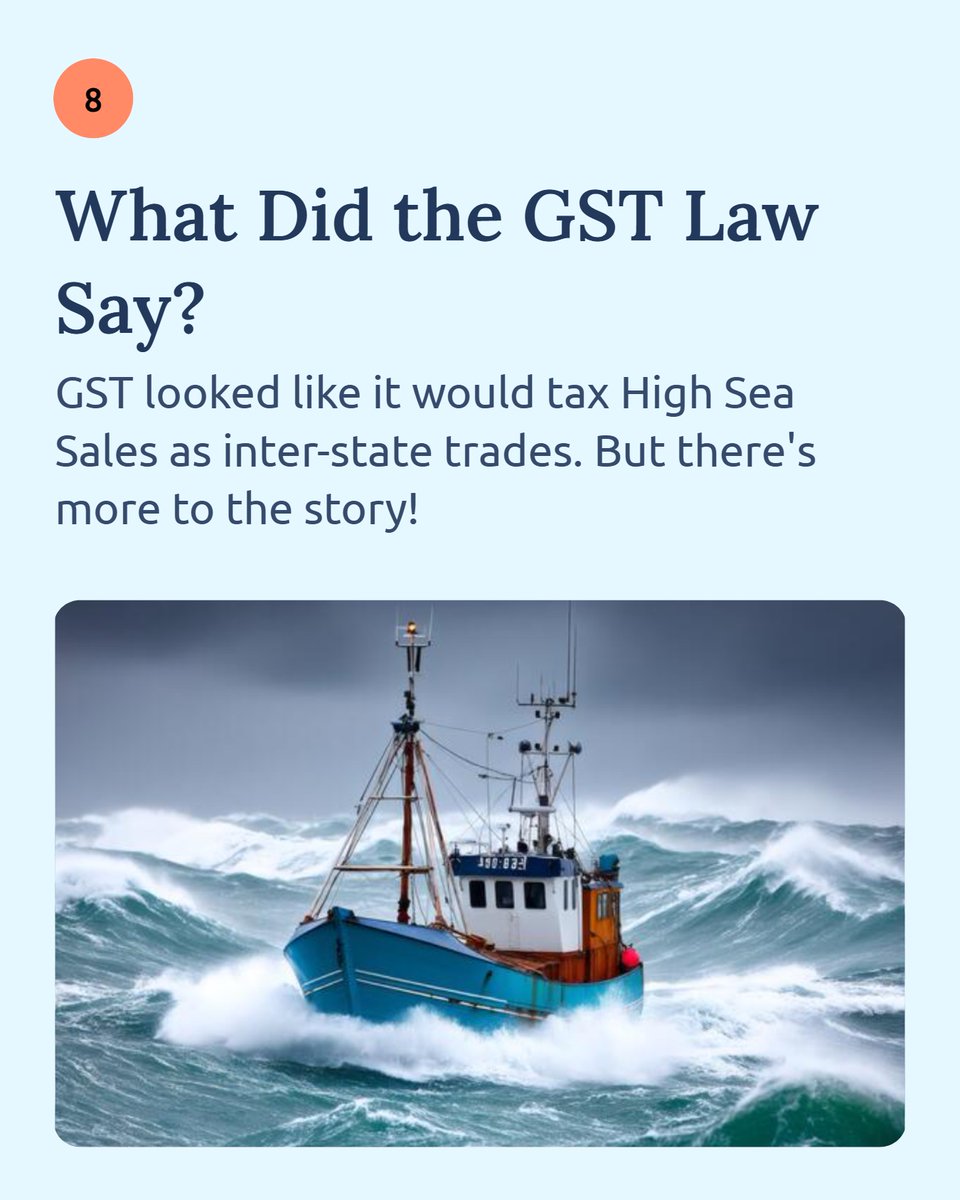
Key documents in HSS include:
High Sea Sale Agreement
Endorsed Bill of Lading
Invoice from seller to buyer
Bill of Entry filed by final buyer
High Sea Sale Agreement
Endorsed Bill of Lading
Invoice from seller to buyer
Bill of Entry filed by final buyer
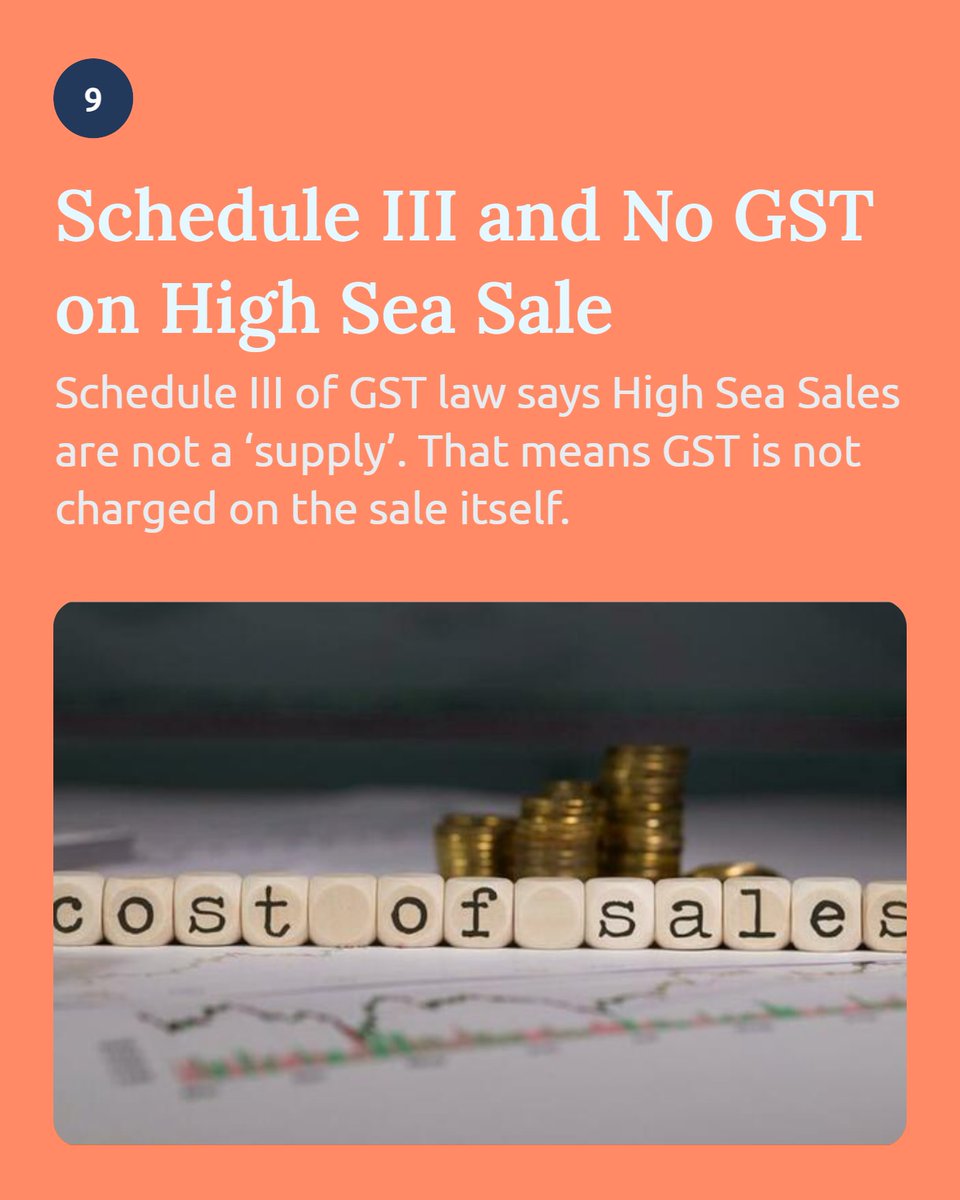
It’s important that the HSS agreement and endorsement of the Bill of Lading are done before goods enter Indian territorial waters. 
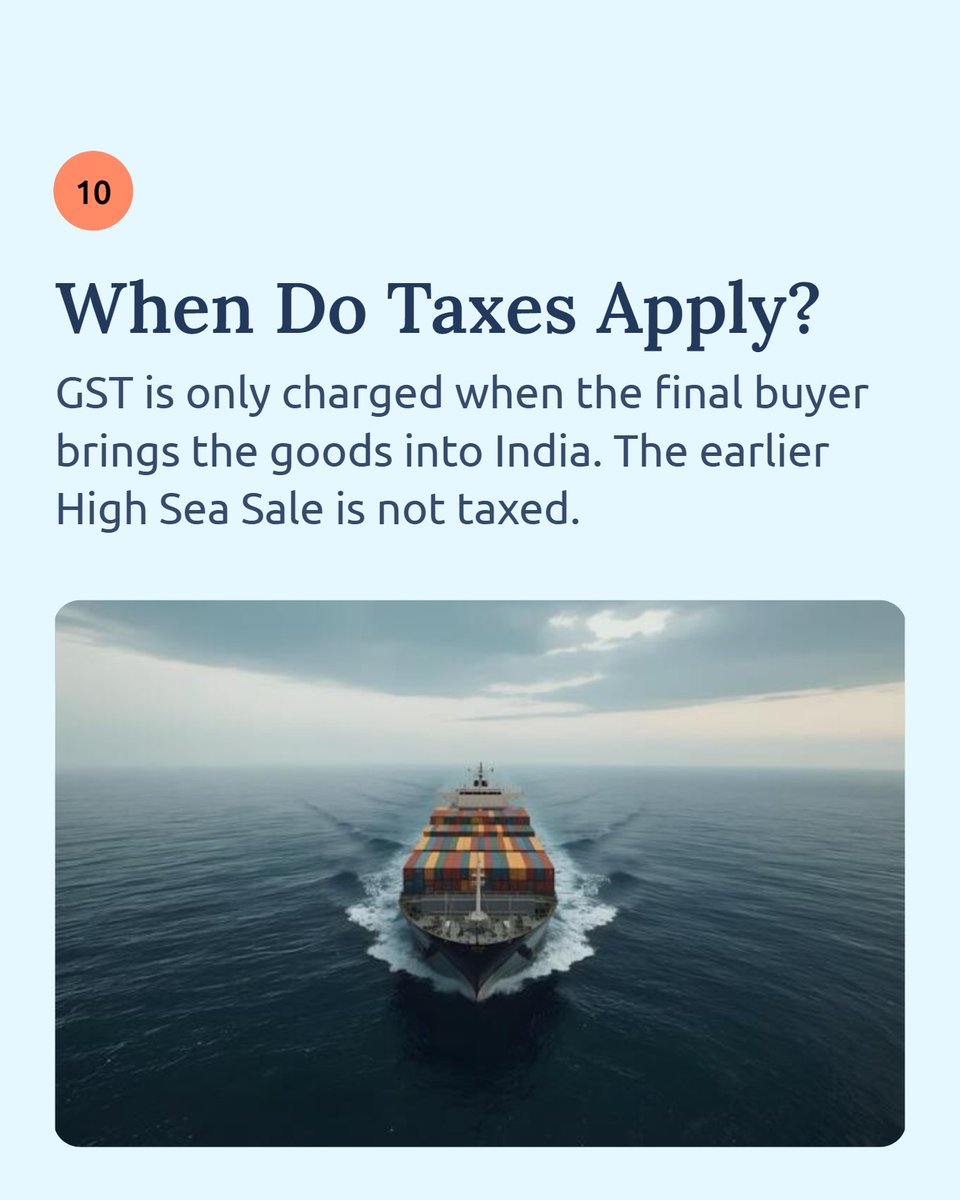
High Sea Sales are typically used by:
Importers who sell goods mid-transit
Traders who don’t want goods entering their stock
Businesses optimizing costs and logistics
Importers who sell goods mid-transit
Traders who don’t want goods entering their stock
Businesses optimizing costs and logistics
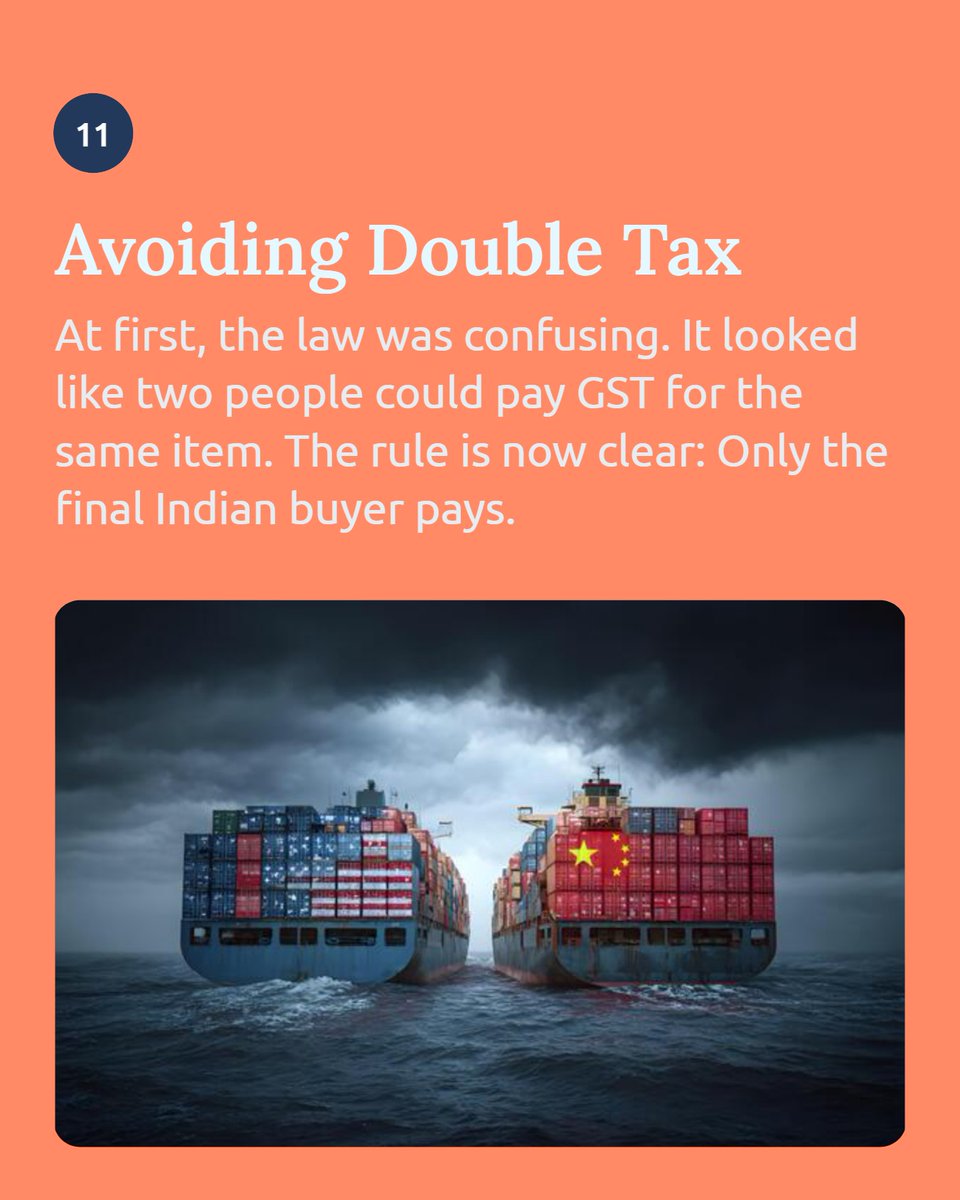
Example:
Importer A orders goods from China.
While goods are at sea, A sells them to B via a High Sea Sale.
B files Bill of Entry → B pays Customs duty + IGST.
Importer A orders goods from China.
While goods are at sea, A sells them to B via a High Sea Sale.
B files Bill of Entry → B pays Customs duty + IGST.
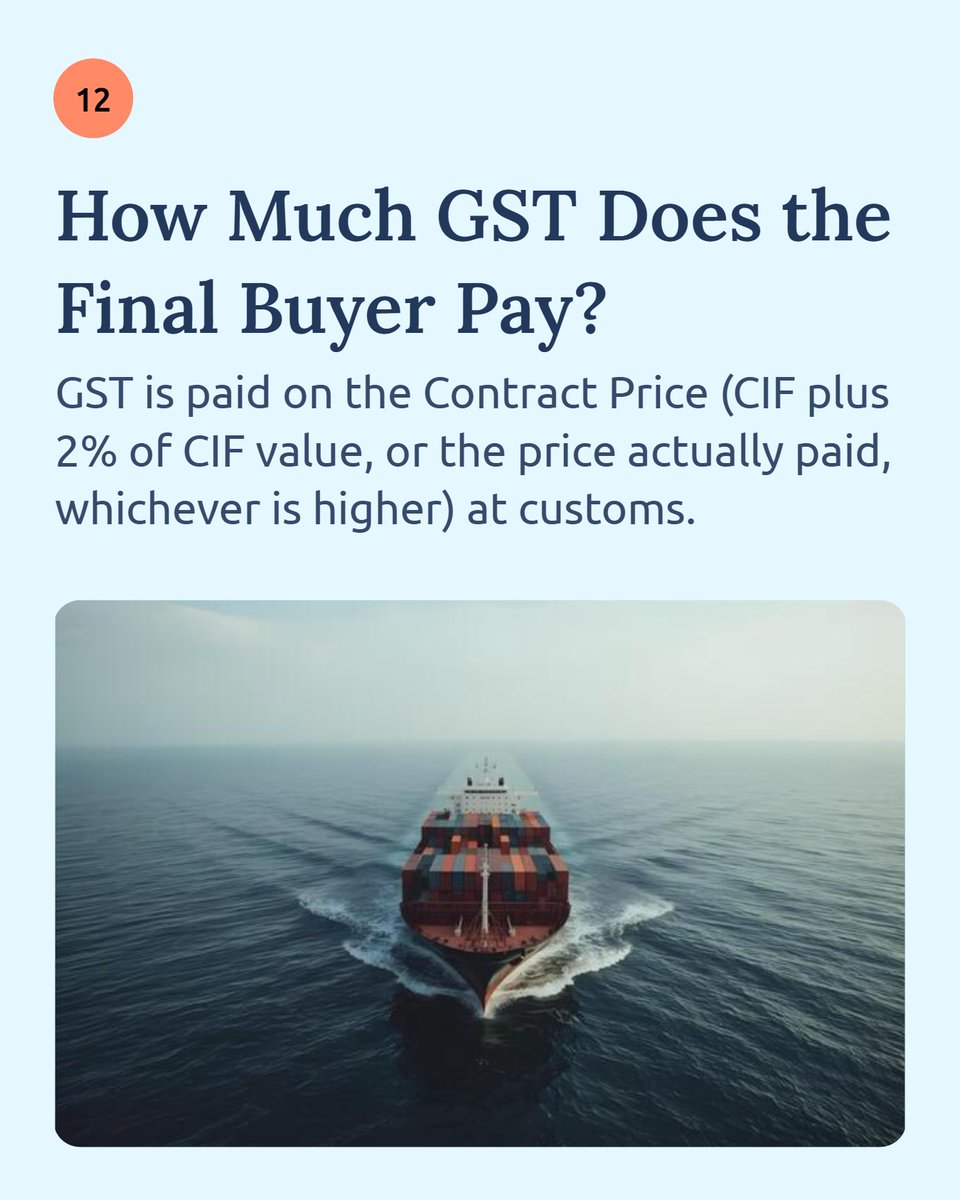
Benefits of HSS include:
Avoidance of double taxation
Flexibility in trade
Lower costs
Efficient inventory management
Avoidance of double taxation
Flexibility in trade
Lower costs
Efficient inventory management
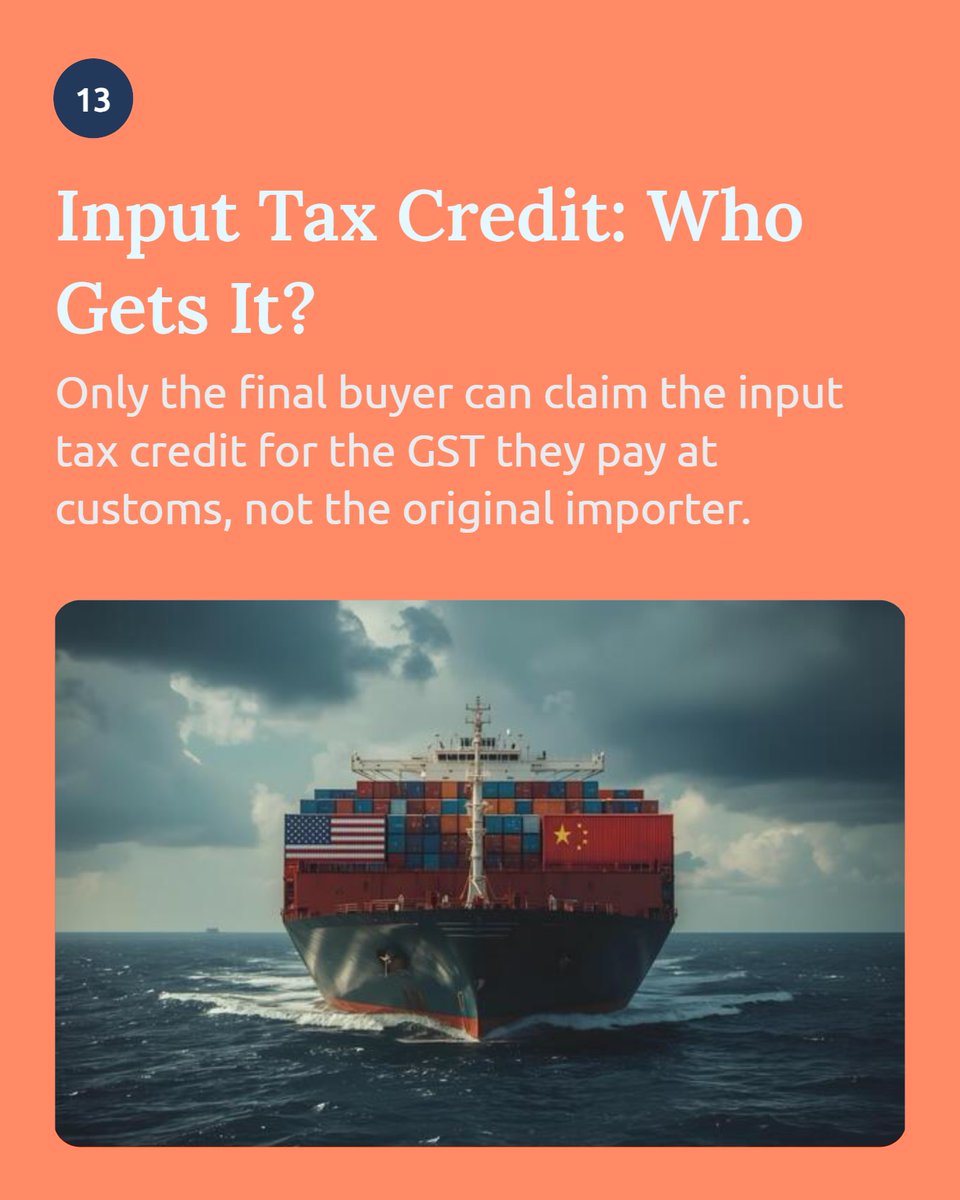
The CBIC has clarified that IGST on HSS is collected only once—at the time of import clearance by the final buyer. 

Some believed that every HSS transaction would attract GST.
That’s not true—the sale is outside GST. Only the final clearance attracts IGST.
That’s not true—the sale is outside GST. Only the final clearance attracts IGST.

High Sea Sales are a legitimate and GST-compliant way to transfer goods before they arrive in India.
For global traders, it’s an essential tool to stay flexible, compliant, and cost-effective. 🌍
For global traders, it’s an essential tool to stay flexible, compliant, and cost-effective. 🌍

• • •
Missing some Tweet in this thread? You can try to
force a refresh












